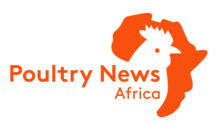Gabon is laying the foundation for one of the biggest agricultural transformations in Central Africa as it moves to end broiler imports by January 2027. To prepare for this historic shift, the government has launched a nationwide capacity-building program targeting over 40,000 poultry sector workers. This initiative aims to give farmers, youth, processors, and feed producers the skills needed to boost local production and transform the country into a competitive poultry powerhouse.
The training campaign is designed to strengthen every stage of the poultry value chain. Participants will learn crucial skills in quality feed production, proper brooding and chick management, disease control, biosecurity, broiler fattening techniques, and slaughtering and processing standards that meet both national and international requirements. By equipping people with practical, modern knowledge, Gabon hopes to replace outdated practices with efficient, high-yield systems that deliver safe, affordable chicken for local markets.
This move is driven by years of heavy reliance on imported chicken. From 2019 to 2023, Gabon brought in an average of 84,912 tonnes of poultry meat per year, while local farms struggled to contribute even 4,122 tonnes. This imbalance has made the country vulnerable to global market shocks and high import costs. Now, with the 2027 ban approaching, the government is determined to close this production gap through skills development, better infrastructure, and strong partnerships.
One of the most significant developments is a new partnership signed on October 31 with Groupe Graine International, an Algerian firm with extensive experience in agribusiness. Under this agreement, the company will build seven large poultry farms, a modern hatchery capable of producing thousands of day-old chicks weekly, and a fully equipped industrial abattoir. Once operational, these facilities are projected to supply over 72,000 tonnes of chicken every year by 2027. The entire project represents a major investment of 47 billion CFA francs (approximately $83 million), marking a huge leap in Gabon’s poultry production capacity.
Additionally, the government recently signed a memorandum of understanding with Turkey’s Hakan Kiran Group. This partnership will create an integrated broiler production unit that includes a feed manufacturing plant. Access to affordable, high-quality feed has been one of the biggest challenges for Gabonese farmers, and this investment is expected to lower feed prices, reduce dependence on imports, and improve the profitability of broiler farming nationwide.
Beyond infrastructure, the 40,000-person training initiative is also expected to create employment opportunities for thousands of youths. By distributing skills across all provinces, the program ensures that farmers in both rural and urban areas can actively participate in the sector’s growth. The long-term goal is to build a strong pipeline of local experts who can manage farms, run hatcheries, operate processing facilities, and support the expansion of the industry.
As Gabon inches closer to the 2027 import ban, its poultry sector is undergoing a total transformation—one that blends investment, training, innovation, and national commitment. With stronger human capacity, modern technologies, and large-scale projects underway, the country is moving steadily toward poultry independence, improved food security, and a more resilient agricultural economy.



